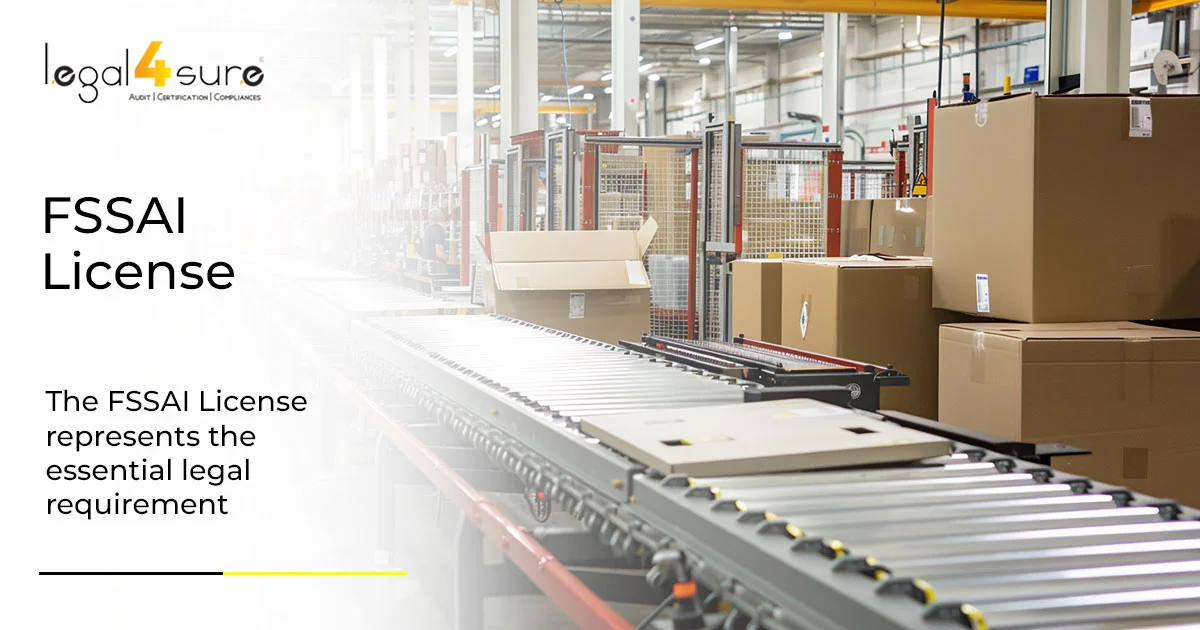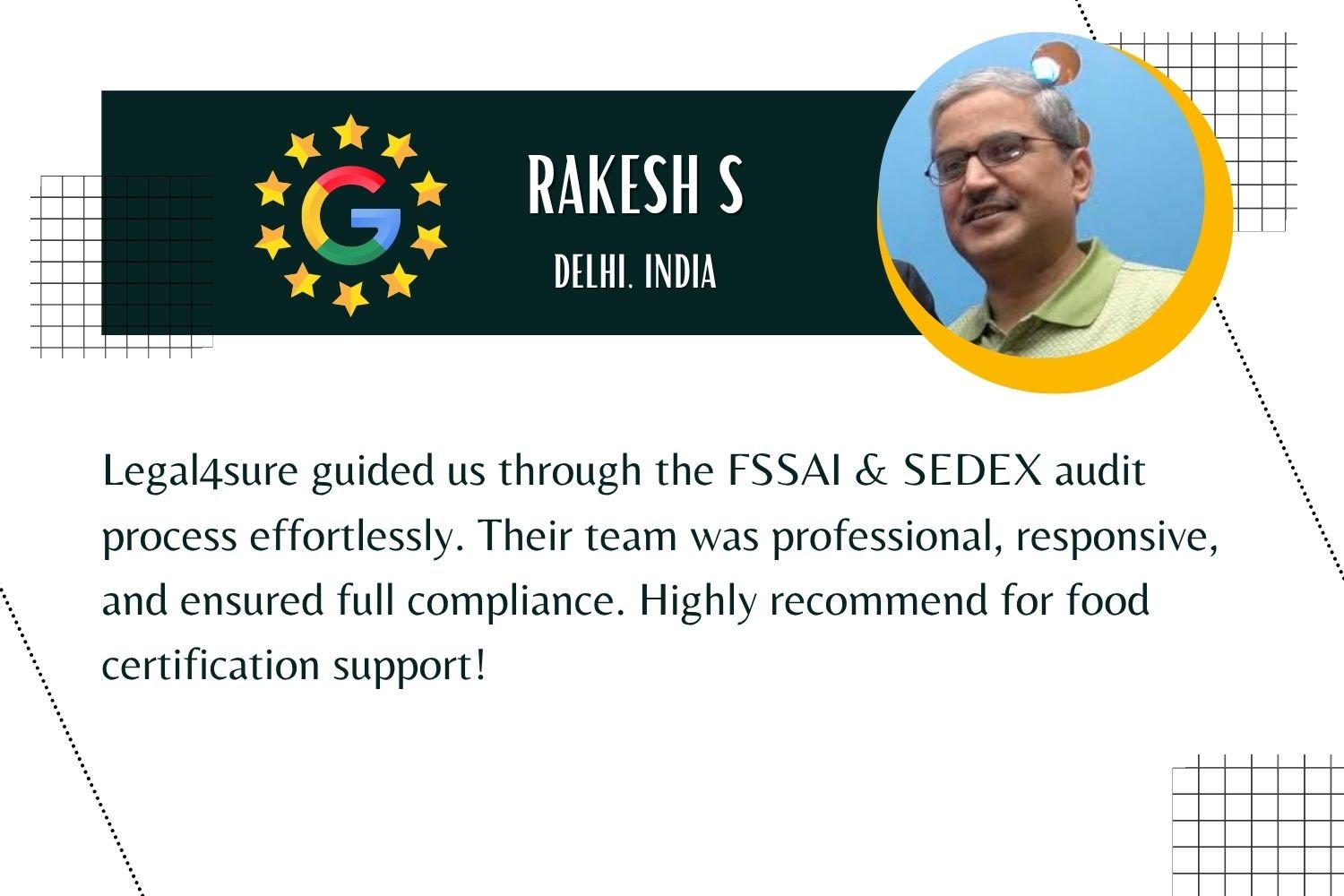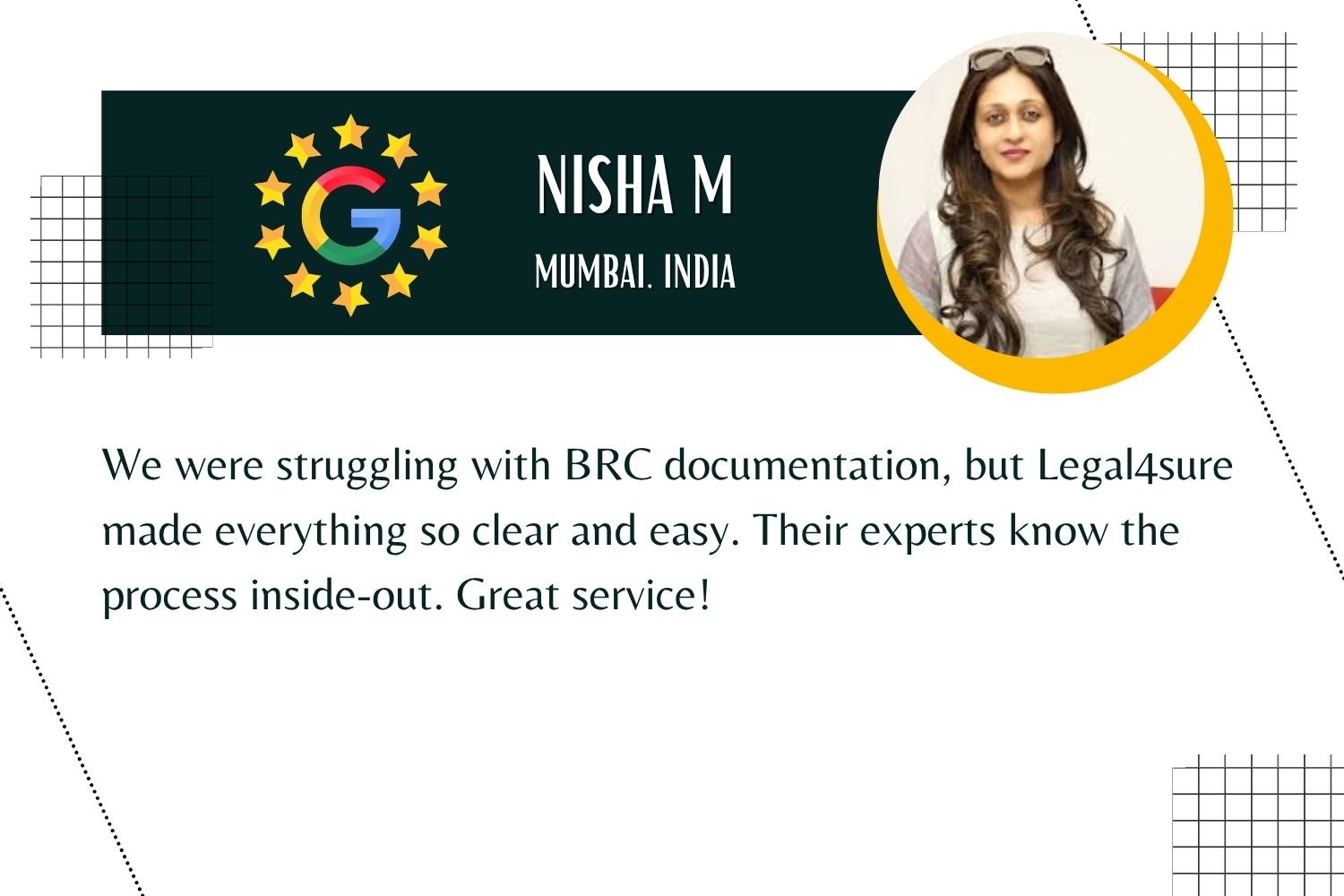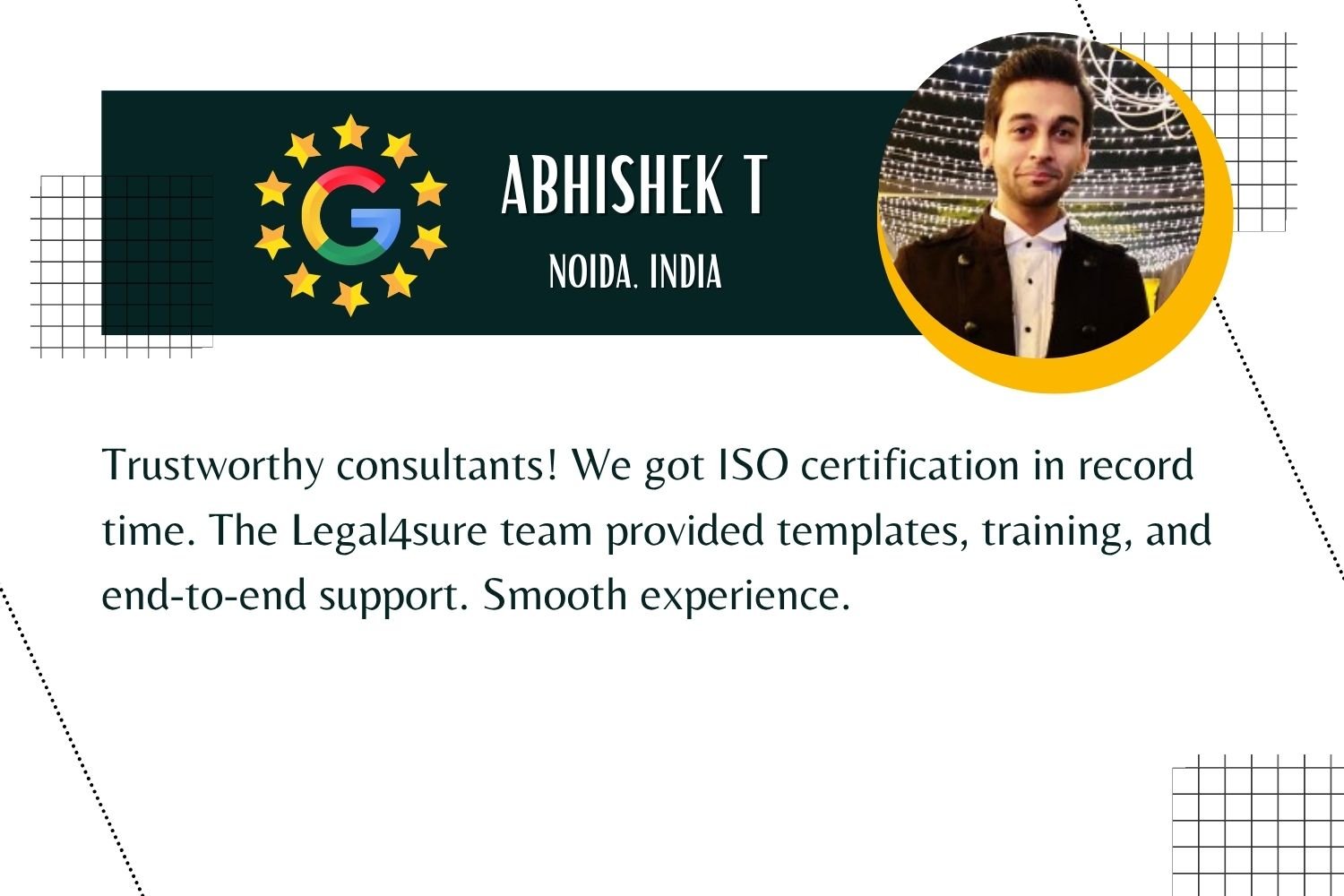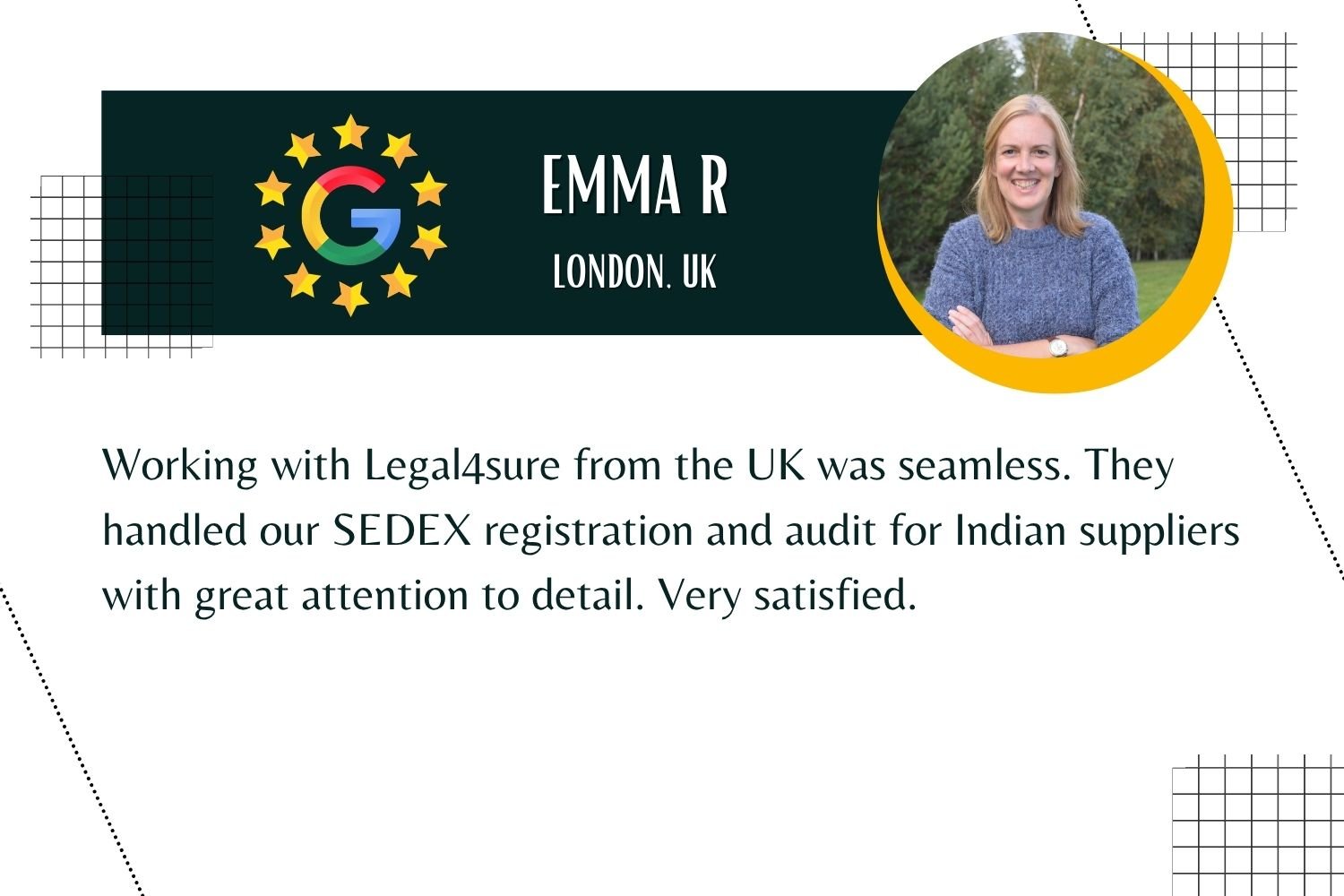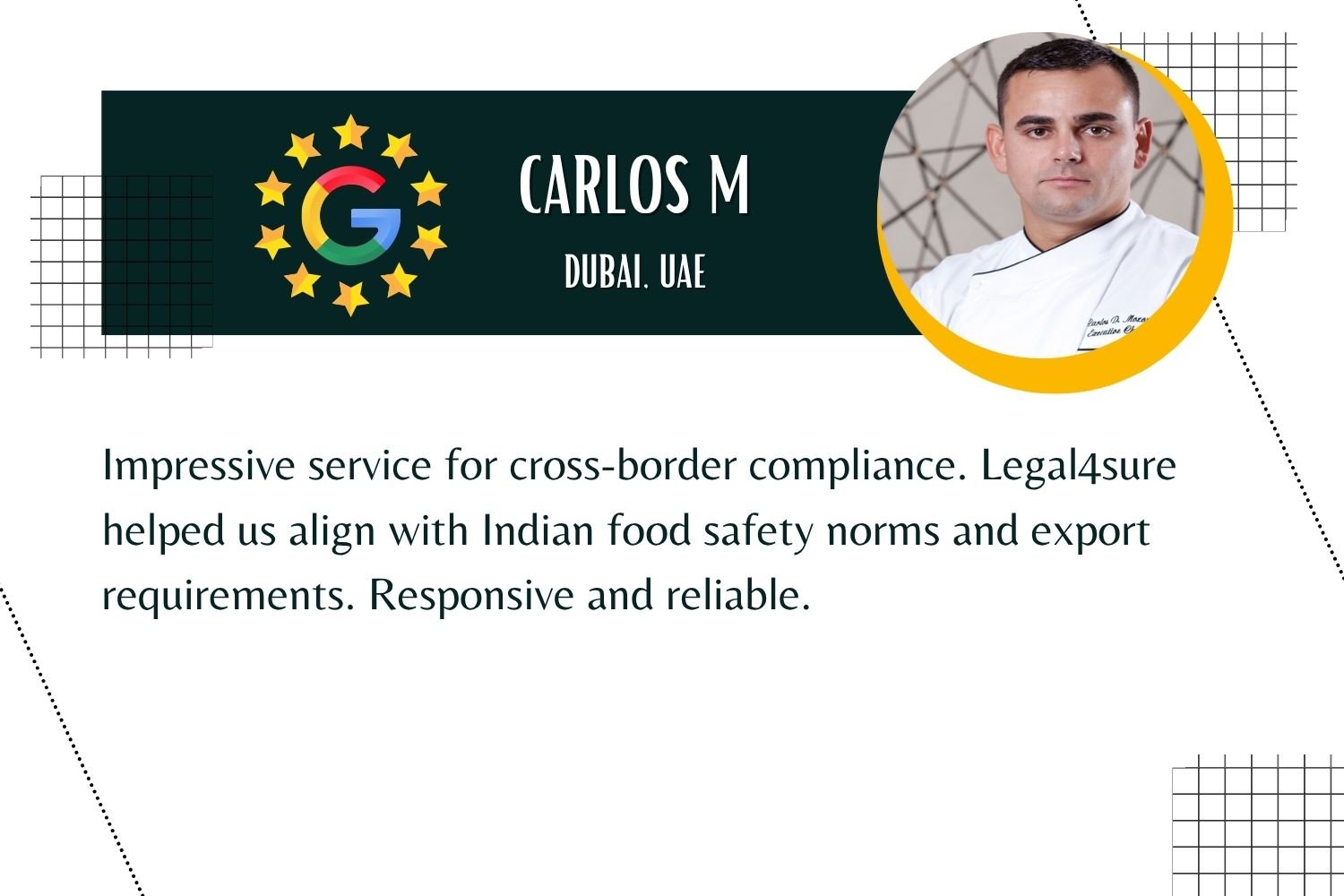Imagine a global food company that has been certified under the older version of FSSC 22000. The impact would not be that good, and as a result, one has to update it with FSSC 22000 Version 6.0 Certification. With the new FSSC Version 6, organizations will need to revise their steps to stay cooperative. This may include better following of food sources or more careful testing of products. These changes can help protect against food safety issues. Moreover, this can protect both consumers and the company’s reputation and image. However, the first major thing is to completely understand the FSSC 22000 V6 updates, and for that purpose, you need to read this blog post completely.
This FSSC 22000 compliance guide will help you to understand what the FSSC 22000 version 6 certification is, FSSC 22000 version 6 certification requirements, FSSC 22000 new changes, and how we, legal4sure, can help you in the whole process.
What is FSSC 22000 Version 6.0 Certification
The Food Safety System Certification (FSSC) 22000 Version 6 is the latest update to one of the most well-known Food Safety Management Systems (FSMS) in the world. This standard make sure the highest levels of food safety, making it beneficial for all organizations in the food industry to comply with the new requirements. FSSC 22000 Version 6 became effective on April 1, 2023. FSSC 22000 is presently used to certify over 31,000 companies globally. Facilities that follow the FSSC 22000 standard have 12 months to get ready for the new rules. Starting April 1, 2024, all audits must use Version 6 of the standard.
While Version 6 is aligned with Version 5.1, it begins with various new requirements for which the analyzer will be looking. This added accuracy showcases the industry’s continuous growth and the rising demand for transparency and responsibility. In this blog post, we’ll find out the key changes, benefits, and the complete details of FSSC 22000 Version 6 certification.
Changes in FSSC 22000 Version 6 certification
FSSC 22000 Version 6 introduces various significant updates to enhance food safety measures and align with global regulatory standards. Major changes include:
Five new standards
- Food safety and quality culture
- Equipment management
- Quality control
- Communication requirements
- Food loss and waste
Existing requirements now include 11 new topics
- Supplier management
- Product labeling
- Food defense
- Food fraud
- Logo use
- Allergen management
- Environmental monitoring
- Transportation and delivery
- Product design and development
- Multi-site organization requirements
- Hazard control and cross-contamination prevention measures
Two requirements remain unchanged
- Verification of PPRS (Plastic Pollution Reduction Standard)
- Validation of health status
Qualitative & Quantitative Traceability of Food Packaging
Labels and printed packaging (including secondary packaging) can be traced qualitatively and quantitatively for food safety information such as best-before dates, allergies, and nutritional values.
Improvements in Allergen Management
Updated guidelines to ensure better control of allergen risks.
Stricter Measures for Food Defense
Improved protocols to protect against intentional contamination.

Updates to the FSSC 22000 Scope
The standard has made some changes to its scope, updating a few categories and making the structure clearer. Here’s what’s new:
➜ The old category for primary production (A) of animal and plant products is now replaced by a new category called “Pre-process handling of plant products” (BIII), which includes things like packaging fruits and vegetables.
➜ A new category (C0) has been added for the conversion of animal carcasses meant for further processing.
➜ Pet food categories (DIIa and DIIb) have been removed, and pet food is now included in the food categories CI to CIV.
➜ The transport and storage services category has been merged into a new G category.
➜ A new category, FII, has been added for brokering activities.
➜ Descriptions of the categories are now clearer and more specific overall. Foods that are meant for special dietary needs or medical purposes can be included in category C if they’re legally considered food in the country where they’re made. Products classified as pharmaceuticals or medical items are not covered by FSSC 22000.
➜ The packaging category (I) now includes items like napkins and packaging materials (such as aluminum foil, waxed paper, and plastic wrap) used in the food industry. Packaging materials for personal use, like in households, are not part of the scope.
➜ The combined FSSC 22000 and ISO 9001 process, which wasn’t previously mentioned by GFSI, is no longer part of the FSSC 22000 scheme.
While Version 6 is aligned with FSSC 22000 Version 5.1, it begins with various new requirements for which the analyzer will be looking. This added accuracy showcases the industry’s continuous growth and the rising demand for transparency and responsibility. Let’s now understand the difference between FSSC 22000 version 5.1 and version 6.
FSSC 22000 Version 5.1 Vs Version 6
Key Aspects |
FSSC Version 5.1 |
FSSC Version 6 |
| Release Date | 3 November 2020 | 31 March 2023 |
| Mandatory Date | 1 April 2021 | 1 April 2024 |
| ISO Alignment | Aligned with ISO 22003:2013 | Updated to align with ISO 22003-1:2022 |
| Scope Expansion | Focused on existing food chain categories | Expanded to include Trading and Brokering (Category FII); removed Farming and FSSC 22000-Quality from the scheme |
| Food Safety & Quality Culture | Basic requirements for promoting a food safety culture. | Integrated complete requirements focusing on the development and maintenance of both food safety and quality culture within the companies. |
| Quality Control | The main focus is on food safety aspects. | Introduced specific requirements for quality control, including quality policy, objectives, product release parameters, and procedures for start-ups and changeovers to ensure proper packaging and labeling. |
| Equipment Management | Not specifically addressed in FSSC 22000 version 5.1. | New requirements focus on the importance of equipment maintenance to prevent food safety hazards. |
| Food Fraud and Defense | Required documented procedures for threat assessment and mitigation. | Increased requirements necessitate complete vulnerability assessments, the implementation of mitigation measures, and regular reviews. |
| Allergen Management | General requirements for managing allergens. | Expanded requirements include detailed risk assessments, validation and verification of control Measures, specific labeling controls, employee training, and annual reviews. |
| Environmental monitoring | Contains basic guidelines for environmental monitoring. | Introduced risk-based assessments for relevant indicator organisms, compliance with customer and regulatory requirements, trend analysis, and annual program reviews. |
| Product design and development | Focused on general product safety considerations. | Added requirements for ongoing shelf-life verification processes and validation of cooking instructions on labels to ensure food safety. |
| Communication requirements | General guidelines for internal and external communication. | Mandated timely reporting to certification bodies within 3 working days of serious events affecting the FSMS or certification integrity, including natural disasters, malicious activities, or significant public food safety events. |
| Certification Process | Contains standard certification procedures | Clarified and modified certification process requirements, including the addition of a QR code on FSSC 22000 certificates for improved traceability. |
| Food Loss and Waste | Not specifically mentioned | New clause requiring organizations to document policies and objectives for managing food loss and waste, including controls for donations, surplus products, and by-products, ensuring compliance with applicable legislation. |
Reasons Behind the Latest Revision in FSSC 22000 certification
The FSSC updated the standard for three main reasons:
- To include the latest requirements from ISO 22003-1:2022.
- To improve guidelines that help companies align with the UN Sustainable Development Goals (SDGs).
- To make improvements based on feedback from nearly 2,000 survey responses during the Version 6 development.
Read More about:- How To Get FSSC 22000 Certification In 90 Days
Benefits of FSSC 22000 Version 6
Getting this FSSC 22000 certification gives you various benefits, including improved food safety management, developing consumer trust, compliance with international regulations, and enhanced supply chain safety.
➜ Improved Food Safety Management: The main benefit of FSSC 22000 certification is that it ensures detailed control over food safety processes. This will help you set a high standard for ensuring food safety for your customers.
➜ Stronger Market Reputation: Certification showcases a devotion to food safety, boosting consumer trust. Customers are like gods for those who have businesses, and providing the best products to them is the biggest responsibility and the only way to gain their trust.
➜ Following Worldwide Compliance Standards: This certification boosts your reach at the global level. Aligns with global food safety standards, facilitating international trade.
➜ Safer and More Reliable Supply Chain: It promotes safer and more efficient supply chain operations.
Requirement for FSSC 22000 Version 6
To obtain FSSC 22000 Version 6 certification, organizations must meet specific requirements, including:
➜ Hazard Analysis and HACCP Plan: Documentation of the risk investigation process and the development of the HACCP plan, recognizing basic control focuses and control measures.
➜ Effective Control Measures: The implementation of strict control measures to ensure food safety.
➜ Detailed Documentation and Regular Audits: Maintenance of thorough records and regular audits to verify compliance.
These requirements are made to ensure that all aspects of food safety are effectively managed.
Documentation Requirements for FSSC 22000 Certification
To satisfy the FSSC 22000 Food Safety certification requirements:
- Food Safety Policy
- Hazard Control Plan
- FSMS or Management Manual
- Procedures
- Food Safety Improvement Plan (monitoring food safety objectives and targets)
- Food Defence Plan
- Food Fraud Mitigation Plan
- Emergency Plan
- Allergen Management Plan
- Records for OPRP and CCP monitoring
- Registers for nonconformances and corrective action
- Environmental Monitoring Plan
Implementation Steps for FSSC 22000 Version 6
➜ Gap Analysis: Conducting a complete review of an organization’s current food safety system to check areas needing improvement and gaps to meet FSSC 22000 guidelines.
➜ Development of FSMS: Improving the performance of events and the implementation of organized food handling The FSSC 22000 guidelines agreed with the board framework (FSMS).
➜ Training: Holding training sessions and seminars to instruct association faculty members at different levels on FSSC 22000 requirements, food handling specifications, and best conditioning procedures.
➜ Preparation for FSSC 22000 Certification Audit: Led and assisted the association in the preparation of the FSSC 22000 Certification review, including the creation of fictitious reviews and status evaluations.
➜ Continuous Improvement: Providing continuous encouragement for ongoing growth, impacting the way that the business manages restoring programs, and improving sanitation.
Get Expert Help with FSSC 22000 Compliance – Free Consultation!
Partnering with Legal4sure would be your best decision for getting FSCC 22000 Certifications. We are well-established consultants for your FSSC 22000 certification services. Our team is filled with experienced or skilled FSSC 22000 consultants and auditors who will help you efficiently receive certification. Legal4sure has rich experience and the much-needed competence to help your organization get certification without any difficulty. To learn more about how you can strengthen your organization with FSSC 22000 certificates, reach out to our consultants now.
Frequently Asked Questions (FAQs)
1. What is FSSC 22000 Version 6?
It is the latest version of the FSSC 22000 Food Safety Management System standard, aligned with ISO 22000:2018, providing a comprehensive framework for food safety across the supply chain.
2. Who should implement FSSC 22000 Version 6?
Food manufacturers, processors, storage & distribution companies, and packaging suppliers seeking GFSI-recognized certification.
3. What are the main changes in Version 6?
-
Alignment with ISO 22000:2018 (risk-based approach).
-
Emphasis on Food Safety Culture.
-
Strengthened vulnerability assessment for food fraud.
-
Clearer requirements for allergen management and environmental monitoring.
-
Enhanced control of outsourced processes and supplier management.
4. What are the core requirements?
-
ISO 22000-based food safety management system (FSMS).
-
Prerequisite programs (PRPs) specific to the sector.
-
Management system documentation and continuous improvement.
-
Hazard analysis and risk-based preventive measures (HACCP).
5. How do I get certified to Version 6?
Implement the updated FSMS, update documentation, train staff on new requirements, conduct internal audits, and pass the certification audit with an accredited body.
6. How long is the certificate valid?
The certificate is valid for 3 years, with mandatory annual surveillance audits to maintain compliance.
7. What are the benefits of Version 6?
-
Stronger compliance with international food safety standards.
-
Improved customer trust and market access.
-
Better management of food safety risks, allergens, and fraud.
-
Encourages a culture of food safety within the organization.
8. What is the timeline for transitioning to Version 6?
Organizations typically have 6–12 months to transition from Version 5 to Version 6, depending on readiness and scope of changes.






